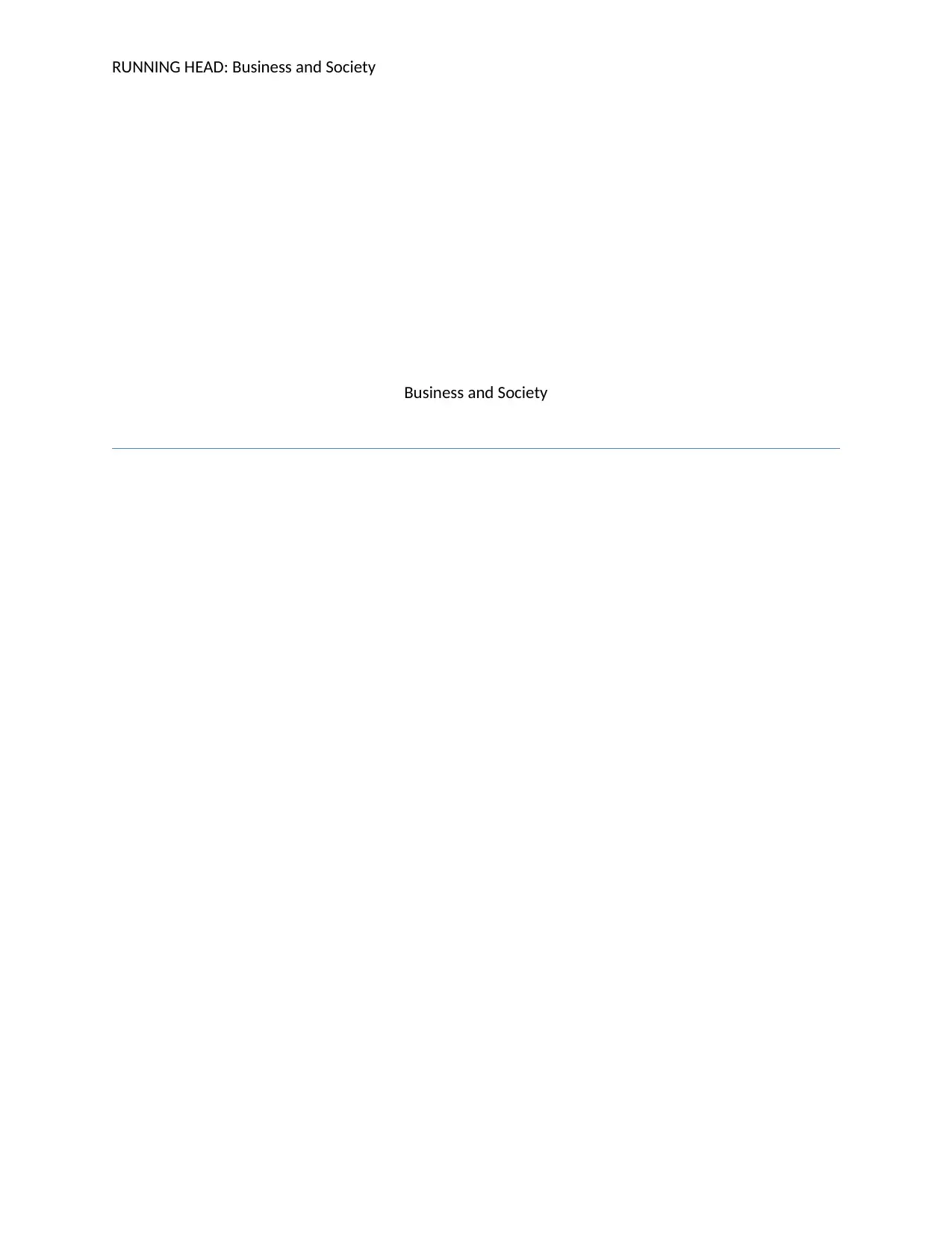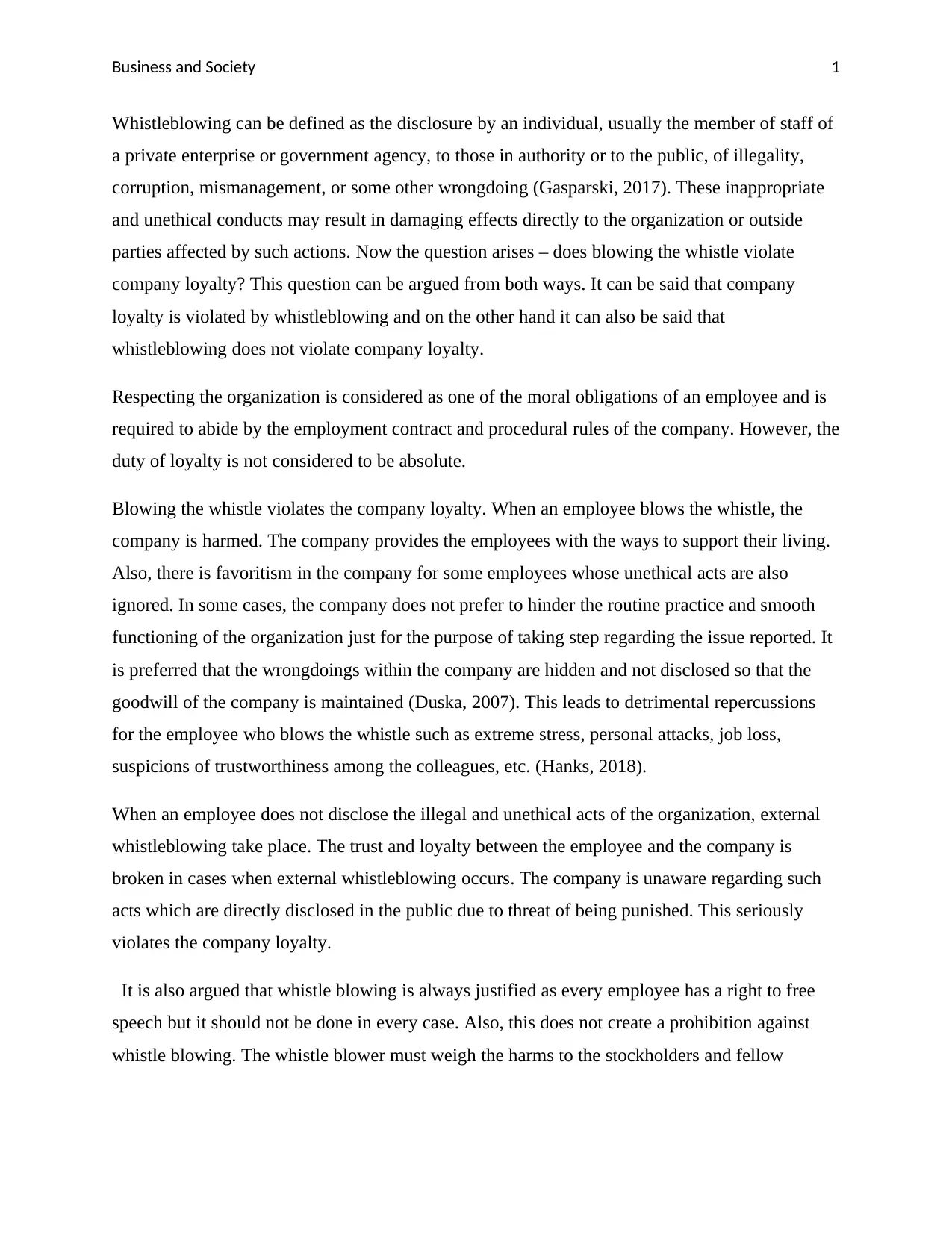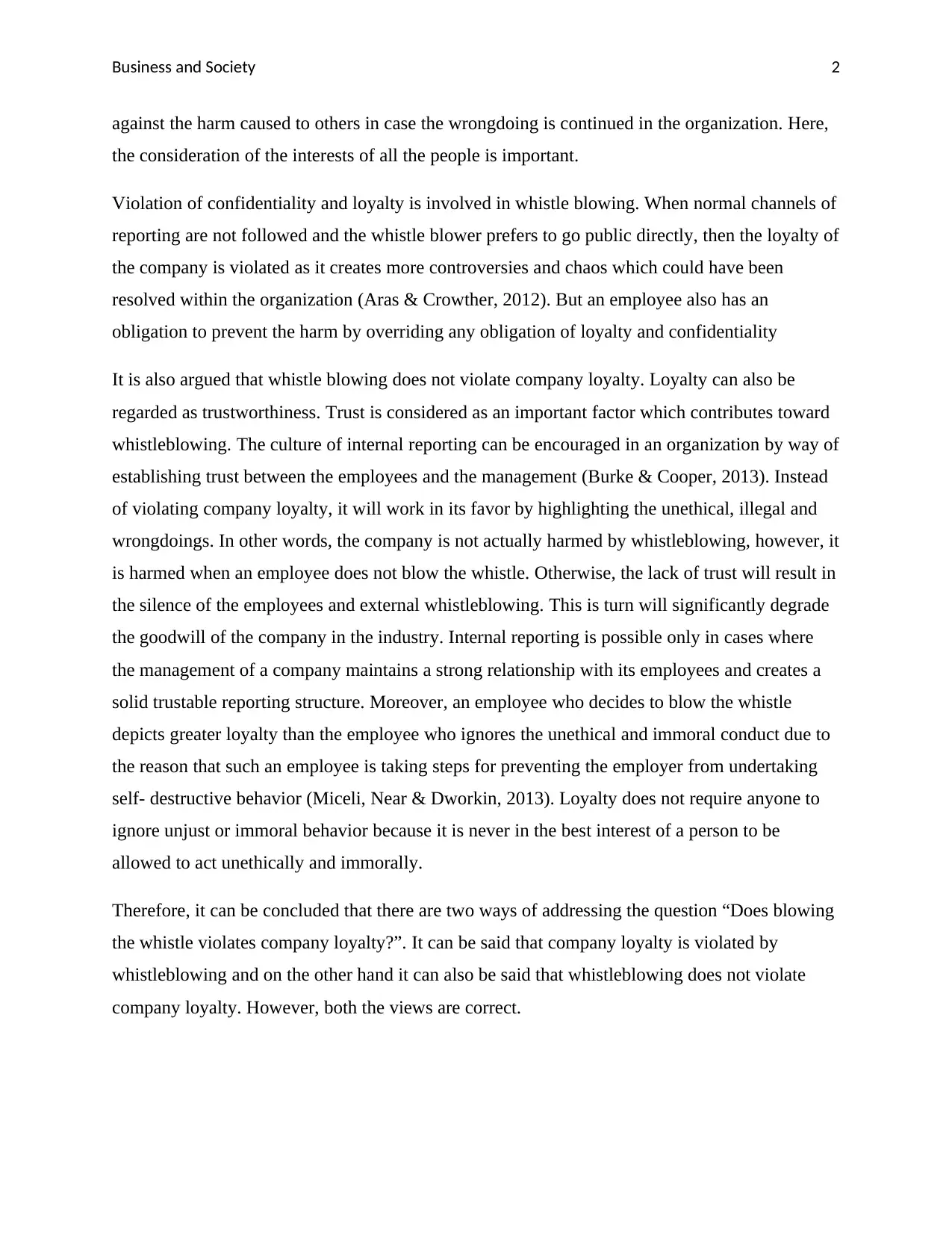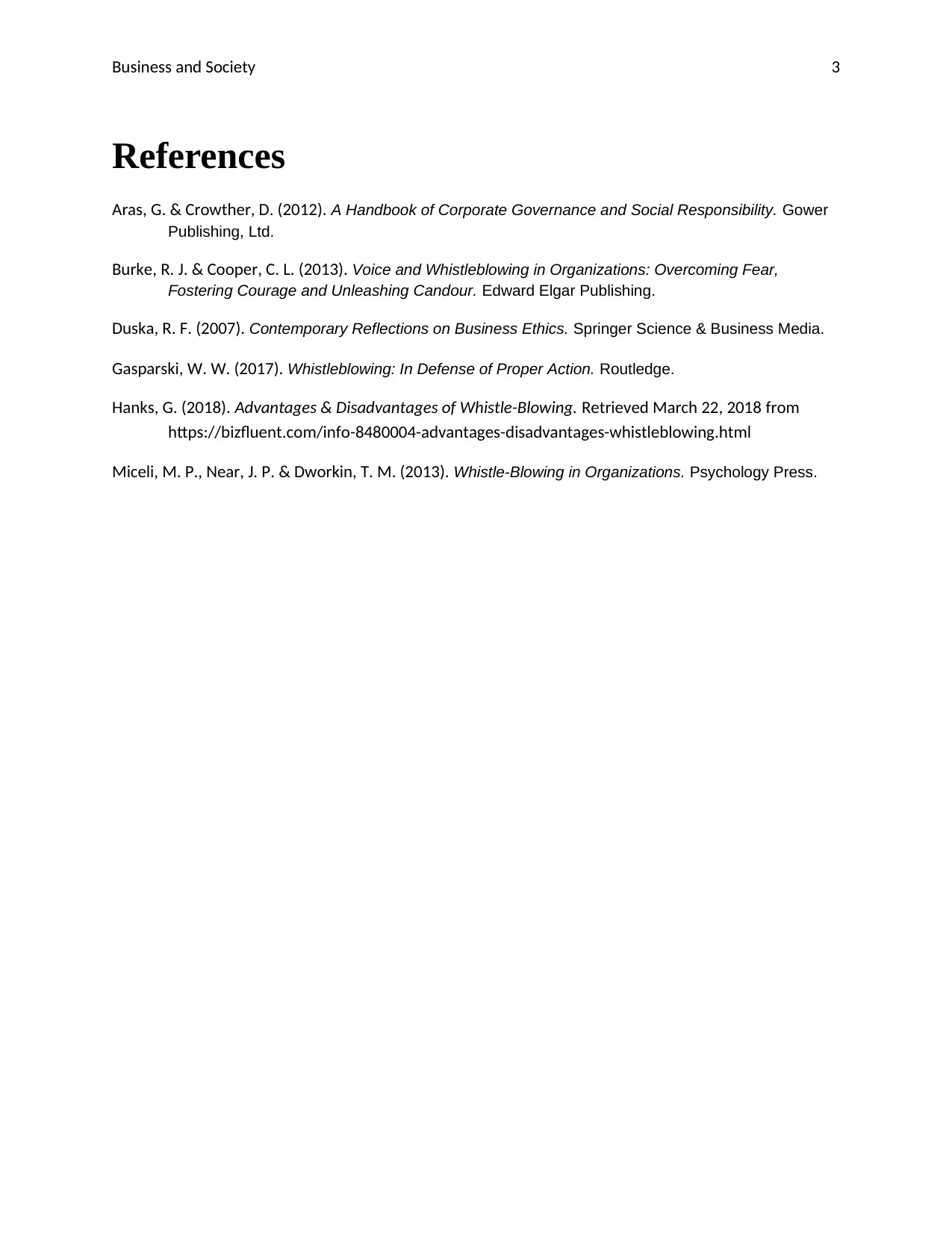A Detailed Analysis: Whistleblowing, Ethics, and Company Loyalty
VerifiedAdded on 2021/04/21
|4
|1020
|55
Essay
AI Summary
This essay delves into the complex relationship between whistleblowing and company loyalty, exploring whether the act of reporting wrongdoing within an organization constitutes a violation of loyalty. The paper defines whistleblowing and presents arguments from both sides of the issue. It discusses the potential harms to a company, such as damage to reputation and broken trust, while also acknowledging the importance of protecting employees and preventing unethical or illegal behavior. The essay examines the concept of company loyalty, including the moral obligations of employees, the importance of internal reporting mechanisms, and the impact of external whistleblowing. It highlights the potential repercussions for whistleblowers, such as job loss and social isolation, while also emphasizing the role of trust and ethical conduct in fostering a healthy work environment. The essay concludes by acknowledging the nuanced nature of the question, recognizing that both perspectives—that whistleblowing violates and does not violate company loyalty—hold validity depending on the specific circumstances and ethical considerations involved. References from various authors are included to support the arguments made.
1 out of 4











![[object Object]](/_next/static/media/star-bottom.7253800d.svg)